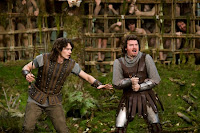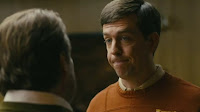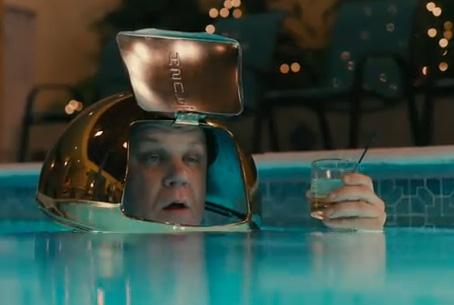 Whenever humankind finally finds a time machine, they will not go back in time to see what the past was like. They will probably just use it to make their own lives better. Or perhaps one good person will use it to make the world better.
Whenever humankind finally finds a time machine, they will not go back in time to see what the past was like. They will probably just use it to make their own lives better. Or perhaps one good person will use it to make the world better.




 Whenever humankind finally finds a time machine, they will not go back in time to see what the past was like. They will probably just use it to make their own lives better. Or perhaps one good person will use it to make the world better.
Whenever humankind finally finds a time machine, they will not go back in time to see what the past was like. They will probably just use it to make their own lives better. Or perhaps one good person will use it to make the world better.



 I will admit that when I first started watching “Roger & Me,” I had no intention of writing a review of it. After all, it is a film I’m watching for a class in order to write an essay about it. However, maybe somewhere around the bunny murder scene, I felt there was just no way I couldn’t review it.
I will admit that when I first started watching “Roger & Me,” I had no intention of writing a review of it. After all, it is a film I’m watching for a class in order to write an essay about it. However, maybe somewhere around the bunny murder scene, I felt there was just no way I couldn’t review it.
 Wait just a minute. Am I watching the latest comedy by David Gordon Green, or a new installment of “Lord of the Rings”? No, this is just “Your Highness,” the latest film from the budding comedic mind of David Gordon Green and his usual comedic team. Seeing as this is his latest stoner comedy, and he is also the director of “Pineapple Express,” I have just one question: where is the weed? More on that in a bit.
Wait just a minute. Am I watching the latest comedy by David Gordon Green, or a new installment of “Lord of the Rings”? No, this is just “Your Highness,” the latest film from the budding comedic mind of David Gordon Green and his usual comedic team. Seeing as this is his latest stoner comedy, and he is also the director of “Pineapple Express,” I have just one question: where is the weed? More on that in a bit.




 Upon first hearing his name, it doesn’t immediately hit the familiarity aspect of directors like Scorsese or Kubrick. Yet Sidney Lumet, who died today at age 86, reached an unparalleled greatness throughout a career that lasted over 50 years.
Upon first hearing his name, it doesn’t immediately hit the familiarity aspect of directors like Scorsese or Kubrick. Yet Sidney Lumet, who died today at age 86, reached an unparalleled greatness throughout a career that lasted over 50 years.


 Comedies that have been made since, let’s say the 90s, have been strongly derived from science fiction. It seems odd to think that the people who were raised on “Star Wars” and “Star Trek” went on to make “Clerks” and “Knocked Up.” I never really connected the dots until I watched “Paul.” Sci-fi, in either the best or worst sense, can also be comedy.
Comedies that have been made since, let’s say the 90s, have been strongly derived from science fiction. It seems odd to think that the people who were raised on “Star Wars” and “Star Trek” went on to make “Clerks” and “Knocked Up.” I never really connected the dots until I watched “Paul.” Sci-fi, in either the best or worst sense, can also be comedy.




 No matter how smart and evolved the human species becomes, we tend to forget one thing: we are all animals. All it took for me to realize that was a little reality check from our friends down under in a deeply disturbing little gem called “Animal Kingdom.”
No matter how smart and evolved the human species becomes, we tend to forget one thing: we are all animals. All it took for me to realize that was a little reality check from our friends down under in a deeply disturbing little gem called “Animal Kingdom.”



.jpg)
 When done right, two genres can somehow fit together quite well. Even if one of them is a little immature, and the other tries to be sophisticated.
When done right, two genres can somehow fit together quite well. Even if one of them is a little immature, and the other tries to be sophisticated.



 Oh, Academy. You could provide us with some amazing set pieces but this year, you couldn’t give us a great show. Too much nostalgia can’t cover a lack of charm. Not to mention, some undeserving winners.
Oh, Academy. You could provide us with some amazing set pieces but this year, you couldn’t give us a great show. Too much nostalgia can’t cover a lack of charm. Not to mention, some undeserving winners.
Best Picture: The King’s Speech

 o. Yet, this year will be the rare year where the Picture and Director prize go to two separate films. This will be the year that David Fincher finally picks up his Best Direct
o. Yet, this year will be the rare year where the Picture and Director prize go to two separate films. This will be the year that David Fincher finally picks up his Best Direct or statue for his dark yet incredibly absorbing take on the tale of the creation of Facebook. Maybe now I can finally forgive the Academy for not nominating him for “Se7en” or “Fight Club.”
or statue for his dark yet incredibly absorbing take on the tale of the creation of Facebook. Maybe now I can finally forgive the Academy for not nominating him for “Se7en” or “Fight Club.” 
 At this point, there’s really no room for an upset. Colin Firth’s moving and inspiring portrayal of the troubled King of England will finally earn this Brit his long deserved Best Actor Oscar.
At this point, there’s really no room for an upset. Colin Firth’s moving and inspiring portrayal of the troubled King of England will finally earn this Brit his long deserved Best Actor Oscar.




